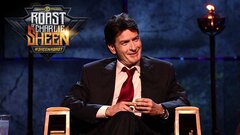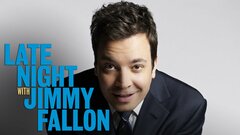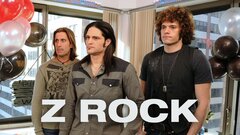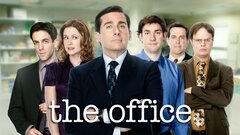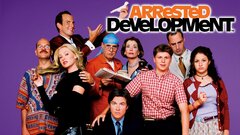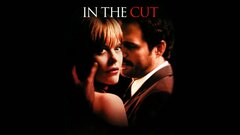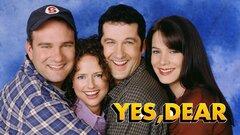A vitriolic stand-up comic and occasional actor whose withering comments about politics, race and his own life drew praise from the comedy world, Patrice O'Neal was a staple of television specials in the late 1990s and early 21st century before his sudden death at the age of 41 in 2011. A larger than life figure in every sense of the term, he was part of a cadre of confrontational stand-ups that included Colin Quinn, Jim Norton, Nick DiPaolo and Rich Vos, whose no-holds-barred humor found favor with young audiences, if not always critical praise.
After a slow-starting career that saw him move from his native Boston to the U.K. in search of a break, he returned to the States in 2002, where he became a favorite on comedy series and specials, as well as in occasional features like "The 25th Hour." After filming a one-hour special for Comedy Central, O'Neal's health took a precipitous turn in 2011, resulting in a stroke that eventually ended his life in November of that year. His untimely passing devastated fans, comedy observers, and the countless performers who shared bills with him over the course of his decade-plus career and who mourned the loss of a comic whose true potential had not yet been tapped.
Born Patrice Lumumba Malcolm Oneal on Dec. 7, 1969 in Boston, MA, he established the tone of his career in comedy even before he set foot on a stage. While heckling a comic at Estelle's, a Boston-area club, O'Neal was invited to take his own turn at the mic to prove if he could deliver a better set. He accepted the challenge, and brought down the house during his debut performance in 1992.
For the better part of the following decade, O'Neal was a fixture of the Boston and New York comedy scenes, where he established a reputation as a fiercely confrontational figure who drew huge laughs by pitting couples in the audience against each other. An equal opportunity offender to the core, O'Neal also often used his own prodigious height and weight for maximum comic effect.
In 1999, O'Neal lit out to the West Coast to try his hand as a comic actor in Hollywood. However, he found few opportunities beyond minor guest roles on television, so he relocated to the United Kingdom to hone his talents. His outsider status forced him to develop a thick skin and a sharp tongue, and the combination soon made him a favorite in U.K. clubs. Word of mouth led to O'Neal's return to the United States, where he soon drew praise for no-holds-barred appearances on "Tough Crowd with Colin Quinn" (Comedy Central, 2002-04) and various talk and variety shows. By 2003, he had earned his own "Comedy Central Presents" (1998-2011) special, as well as supporting roles in Spike Lee's "The 25th Hour" (2002) and Chris Rock's "Head of State" (2003). Terrestrial and satellite radio proved to be one of his most popular mediums, most notably as a fill-in host on the "Opie and Anthony" program and on his own show, a relationship advice series called "The Black Phillip Show" on XM Radio that poked fun at "Dr. Phil" (syndicated, 2002- ).
Animated series like "Shorties Watchin' Shorties" (Comedy Central, 2004) and "O'Grady " (The N, 2004-06) made excellent use of O'Neal's shrill if versatile voice, but on occasion, he could deliver more subtle performances, like his taciturn bailiff on the short-lived but critically acclaimed series "The Jury" (Fox, 2004), produced by Barry Levinson and Tom Fontana. In 2005, he earned his own "One Night Stand" (HBO, 1989-1992, 2005) special, as well as a web series and podcast called "The Patrice O'Neal Show - Coming Soon!" By 2006, he was playing major arenas as part of the Opie and Anthony Traveling Virus Comedy Tour and making regular appearances on "The Office" (NBC, 2005-13) as an imposing warehouse worker.
O'Neal's final film appearance was the 2010 comedy "Furry Vengeance" with Brendan Fraser. He would film "Elephant in the Room," his only hour-long comedy special for Comedy Central in 2011. Mounting health issues, including a struggle with diabetes, would take its toll throughout the remainder of the year; those problems would serve as fodder for his fellow comics at O'Neal's final television appearance, "The Comedy Central Roast of Charlie Sheen" in September 2011. A month later, O'Neal suffered a debilitating stroke that eventually claimed his life on November 28, 2011, leaving the comedy world bereft at his loss.
By Paul Gaita

